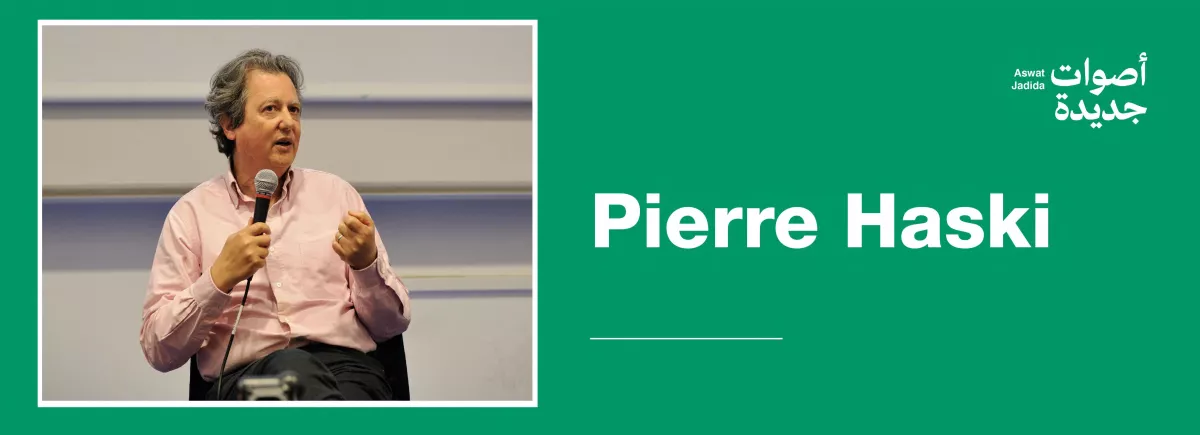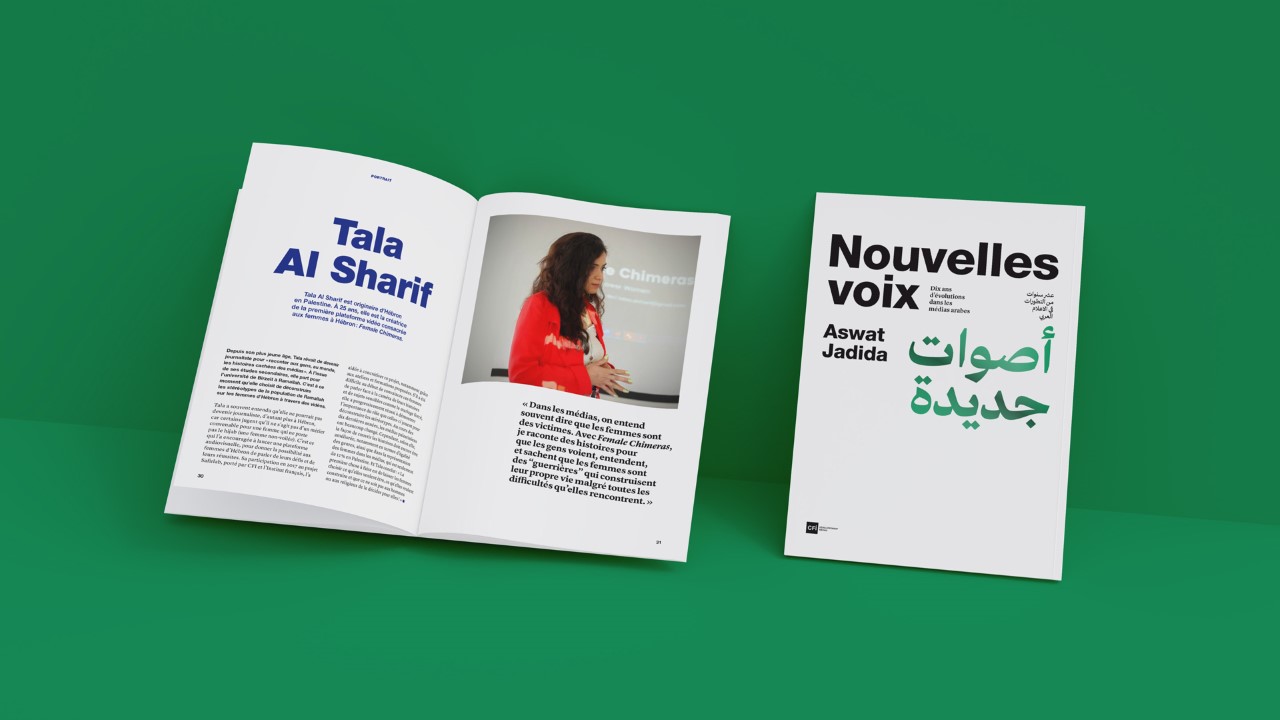
Pierre Haski
Related project
4M MashreqPierre Haski, a French journalist and President of the Reporters Without Borders (RSF) organisation, reports on geopolitical news at France Inter, a public radio station. Today he looks back at his memories of the 4M forums and shares his view of the region’s media, ten years on from the Arab Spring.
You took part in the launch of the first 4M forums, can you tell us about that experience?
In the immediate aftermath of the Arab Spring of 2011, I and a few others were struck by the role played by bloggers and social media, and the emergence of this new dynamic. And the idea was planted of supporting the birth of new media outlets, through CFI, in what we imagined would be free, democratic societies.
That was how the idea came about for the first 4M forum in Montpellier, which aimed to rally all the players in the Mediterranean basin who had been involved in this adventure. Above all, it was a tremendous experience from a human perspective, as there was real joy at meeting up. Admittedly there were contrasts between countries and differing realities, but everyone was happy to get together and, above all, get to know one another. We heard some pretty funny things in the corridors: Ah, so were you YZ 2472? As participants had all been working more or less underground, they all had pseudonyms on social media. Most of them were meeting each other in real life for the first time.
I also remember some rather magical moments in the debates, with ideas fermenting, glimpsing utopia even as
{"preview_thumbnail":"/sites/default/files/styles/video_embed_wysiwyg_preview/public/video_thumbnails/L0Zk4NwCwK4.jpg?itok=vlsKDuN6","video_url":"https://youtu.be/L0Zk4NwCwK4","settings":{"responsive":1,"width":"854","height":"480","autoplay":1,"title_format":"@provider | @title","title_fallback":true},"settings_summary":["Embedded Video (Adaptatif, autoplaying)."]}
Which 4M gathering was the most striking in your view?
The first, inevitably, because of the surprise element, and then maybe the second. That was the one held in Tunis in 2012 for the first anniversary of the revolution. Of course, there was much greater participation by Tunisians, which was really very rewarding. At the third 4M in Montpellier, I was struck by the observation of an Egyptian blogger who said: Facebook was our greatest ally during the revolution. It’s now our worst enemy, because it has become the vector for all the manipulation, rigging and disinformation. This clearly showed the turnaround that had taken place. Looking back, we can completely understand what he was referring to but, at the time, that remark caused a sensation.
{"preview_thumbnail":"/sites/default/files/styles/video_embed_wysiwyg_preview/public/video_thumbnails/1-Q9Gwl82jk.jpg?itok=ErZYIBrZ","video_url":"https://youtu.be/1-Q9Gwl82jk","settings":{"responsive":1,"width":"854","height":"480","autoplay":1,"title_format":"@provider | @title","title_fallback":true},"settings_summary":["Embedded Video (Adaptatif, autoplaying)."]}
What remains today of that experience and those meetings?
I think all those who took part in these gatherings still have very powerful memories of them, imbued as they were with a spirit of fraternity, cooperation and learning. Everyone learnt things at these forums; there were training sessions, debates, lots of fringe conversations at mealtimes and evening events. It was very rewarding and I think it left a lasting impression on participants. And then there was this idea of a common space centred on the Mediterranean, that we then tried to extend.
The Mediterranean foundations for this process were strong and, although it hasn’t yet come to fruition, it may still happen one day.
{"preview_thumbnail":"/sites/default/files/styles/video_embed_wysiwyg_preview/public/video_thumbnails/wso7DhlDSRQ.jpg?itok=waMgYD_x","video_url":"https://youtu.be/wso7DhlDSRQ","settings":{"responsive":1,"width":"854","height":"480","autoplay":1,"title_format":"@provider | @title","title_fallback":true},"settings_summary":["Embedded Video (Adaptatif, autoplaying)."]}
In your opinion, how have media outlets in the Arab world changed in the last ten years, in particular in terms of the democratic hopes they championed at the start of the uprisings?
Many hopes have been dashed regarding political processes, thus preventing these media outlets from progressing. Egypt today is undoubtedly subject to as much censorship, if not more, than in Mubarak’s time, before the revolution. We’ve seen civil war in Libya, Syria and Yemen. Secondly, even when the political conditions were all met, as in Tunisia, there was not a birth of media, a surge in interest or a rallying around media outlets that we might have anticipated or tried to support.
Some fine achievements remain – such as the Inkyfada media outlet founded by Inkyfada, fondé par Malek Khadhraoui, a great success story born directly of this revolutionary process – but the spawning of free media outlets didn’t live up to our hopes.There is clearly a generation that, directly or indirectly, consciously or not, has been asserting itself as the child of that Arab Spring for the last ten years.
What have you observed in recent years regarding the emergence of alternative media as vectors for greater freedom of expression?
I think they’ve run into two, even three obstacles.
The first is political, as alternative media requires a free environment. The second is the need for professionalism: projects need to be led by people with both experience and a vision of what constitutes journalism.
The third obstacle, and one of the more complicated, is the economic model. Nowadays it is very difficult to keep an independent media outlet going, given dependence on advertising, which is very political in itself. Inventing new economic models is a complicated matter. However, this is a prerequisite if these media outlets are to survive in the long term. This is why Malek Khadhraoui’s case is very interesting. His project has come to fruition and survived, and Inkyfada has found its way by experimenting with a new model including training and video production.
What’s the position now regarding the generation of journalists who emerged in the immediate aftermath of the Arab Spring? And today’s generation?
There is clearly a generation that, directly or indirectly, consciously or not, has been asserting itself as the child of that Arab Spring for the last ten years. Some doors opened at that point. Some political doors have since closed again, but there are also doors in people’s heads that remain open. That’s what’s important, that’s what gives us hope for the future.
In 2011, there was an element of surprise: nobody saw the Arab Spring coming. Today, this element has subsided, and journalists are confronted with a less promising environment. But we need to keep in mind the fact that the course of events is not written in stone, it is not foreseeable. We have to create the conditions in which new media may emerge in all these countries, whether sooner or later. We have to help journalists to train and think about their plans. Networks are of fundamental importance and must be established to foster collaboration, discussion and sharing, thus ensuring that, when the day comes for the door to open once more, journalists can hatch more viable initiatives than in the past.
Through the testimonies, portraits of journalists and the human adventures of our series Aswat Jadida ("New Voices", in Arabic), discover ten years of support for media development in the Arab world.



